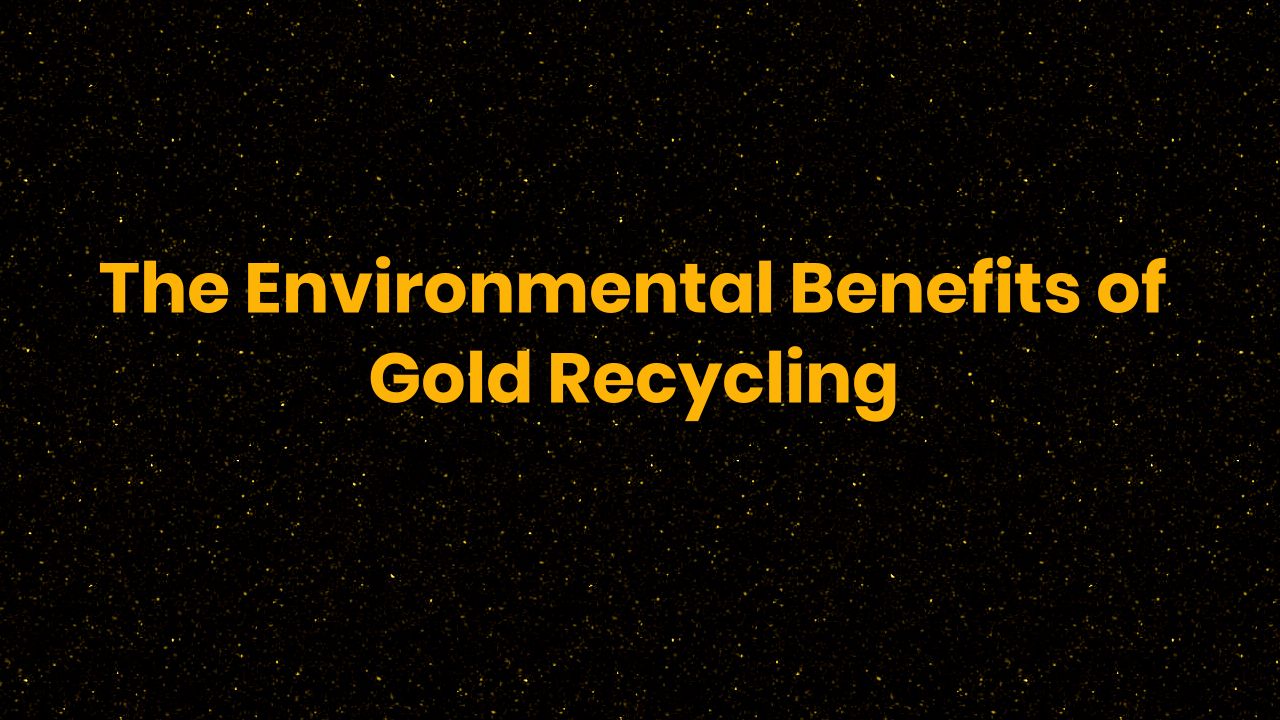
Table of Contents
Introduction to Gold Recycling
The gold industry has a great impact on the global economy, driving developments in mining and extraction technologies. Gold mining and processing also have serious environmental consequences. However, with the right technology and mindset, we can significantly reduce these negative effects. Gold recycling is a sustainable approach to meet the increasing demand for the precious metal. It preserves natural resources, decreases waste, reduces greenhouse gas emissions, and helps mitigate the environmental impacts of gold mining.
The Environmental Impact of Gold Mining
Gold mining has far-reaching environmental consequences. The most significant impact is soil erosion, land disturbances, and deforestation. Gold mining also contributes to increased water and air pollution. Toxic chemicals, such as mercury and cyanide, used in the mining process, quickly contaminate nearby water sources and have long-term effects on aquatic organisms, plants, and animals. Additionally, gold mining has a significant energy consumption rate and is responsible for 28% of the world’s carbon emissions.
Energy and Water Consumption in Gold Mining
Gold mining is an energy-intensive process that uses significant amounts of water. The process involves blasting and excavating rock, crushing, grinding, and processing ores. All these phases require a vast amount of energy to operate heavy machinery and transport ores, leading to high energy consumption rates. Furthermore, the mining industry consumes 10% of the world’s total energy and 2% of the world’s freshwater.
Toxic Chemicals and Waste Produced by Gold Mining
Gold mining produces significant waste and releases toxic chemicals into the environment. The cyanide and mercury used during gold extraction contaminate the soil, air, and water, leading to long-term environmental consequences. Emissions from mining vehicles and equipment also contribute to air pollution, leading to respiratory diseases and affecting plant life and ecosystems. Moreover, gold mining generates a massive amount of waste rock and tailings, leading to the destruction of habitats and local landscapes.
The Advantages of Gold Recycling
Gold recycling presents many advantages for the environment, including a reduction in energy and water consumption and a decrease in waste and pollution. It also offers economic and social benefits for communities worldwide. Gold recycling uses existing gold to create new products, reducing the demand for gold extraction and, consequently, the environmental impact of mining.
Reduction in Energy and Water Consumption
Gold recycling reduces energy and water consumption because it uses less energy to collect, sort, and melt scrap gold than to mine, refine, and purify virgin gold. Recycling one tonne of gold only requires 16% of the energy needed to mine the same amount of virgin gold. Moreover, it takes five times as much water to produce an ounce of gold from mined ores than recycled gold.
Reduction in Emissions and Pollution
Gold recycling significantly decreases greenhouse gas emissions and other pollutants associated with gold extraction. By reducing the need for mining, we can decrease the reliance on fossil fuels and minimize emissions generated from mining-related activities. Recycling gold also reduces water and air pollution caused by toxic chemicals such as mercury and cyanide.
Reuse of Precious Natural Resources
Gold is a scarce natural resource, and gold recycling helps preserve it. Recycling gold reduces the demand for new mining efforts and the subsequent environmental impacts related to it. Recycling gold is also essential for the efficient use of resources and for safeguarding the gold reserves for future generations.
Economic and Social Benefits of Gold Recycling
Gold recycling has a significant impact on the global economy, creating jobs and new business opportunities in recycling and refining. Communities worldwide can benefit from the shift to recycling gold, which supports local economies and businesses. Moreover, recycled gold is typically more affordable than newly mined gold.
Summary and Conclusion
Gold recycling offers an environmentally sustainable solution to meet the global demand for gold while reducing the long-term environmental impact of gold mining. Through gold recycling, we can conserve precious natural resources, reduce energy and water consumption, and curtail the emission of greenhouse gases and other hazardous chemicals. The economic and social benefits of gold recycling are also significant. Therefore, we encourage industries and individuals alike to take proactive steps towards recycling gold and promoting environmental conservation globally.





